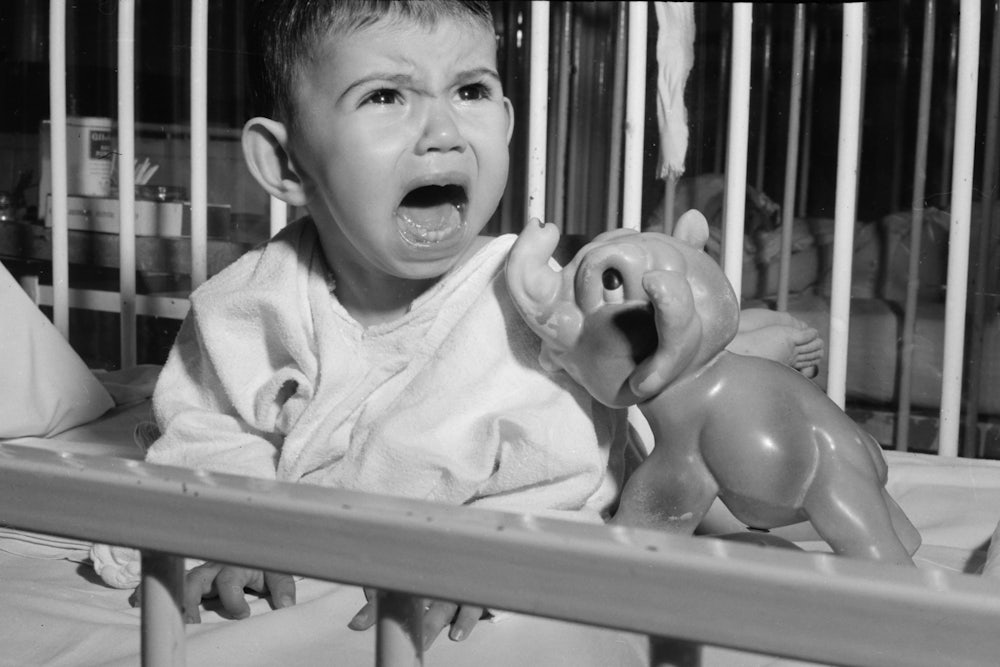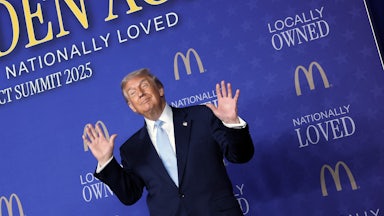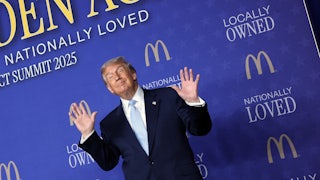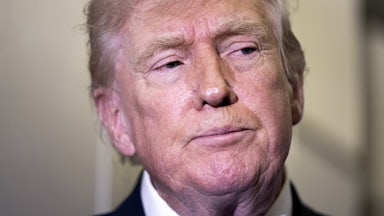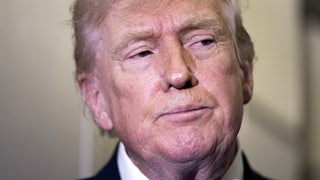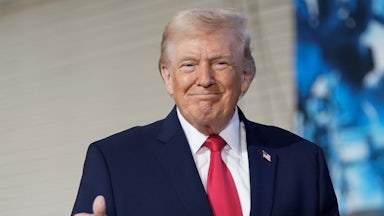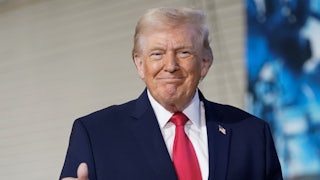On February 3 President Donald Trump halted the most predictable stock market drop in human history by agreeing to delay by one month a 25 percent tariff on Mexico and Canada. Yesterday, I wrote that Trump was so hell-bent on trying to replace the income tax with tariff revenue that nothing but oligarchs paying extortion through massive Trump memecoin purchases could deter him. But it turns out that a thousand-point drop in the S&P 500—and perhaps last week’s $10 billion sell-off of $TRUMP and $MELANIA, the memecoins in question—worked just as well.
Before proceeding, let me reaffirm that Trump’s governing tool kit includes extortion. Trump’s inaugural committee, which raised a reported $250 million, was a massive extortion racket. So are Trump’s legal actions against various news organizations and social media companies, which he’s settling on terms that are remarkably favorable considering the weakness of his claims. The 40 “whales” (i.e., large investors) whom Business Insider reported in January to own 94 percent of Trump’s worthless memecoins, in increments each exceeding $10 million, surely expect something in return for enriching the president personally. We don’t know who they are because for some bizarre reason these people are permitted to keep their identities secret.
But today, at least, the Mexican and Canadian tariffs are on hold, and the only logical explanation why is Trump’s infantile incapacity to grasp the mechanics of cause and effect. You tell him not to look directly at an eclipse because it’s bad for your eyes, and he looks directly at the eclipse (three times!). You tell him not to slap 25 percent tariffs on Canada and Mexico because the markets will crater, and he does it anyway.
Our best guide to Trump’s pullback Monday is not tariff policy, nor economic policy generally, but the child development theory of the Swiss psychologist Jean Piaget. From the ages of 2 to 7, Piaget explained, a child is unable to identify cause and effect logically and instead engages in transductive reasoning. A child might believe, for instance, that his taking a nap causes it to be afternoon, when in fact it being afternoon is what causes his parent to put him down for a nap.
Most of us grow out of the transductive phase. Trump did not, making it difficult to distinguish his lies from his delusions. Physical exercise makes you die young. Windmills kill whales. DEI caused last week’s fatal collision in Washington, D.C., between an Army helicopter and a passenger plane.
Because Trump’s reasoning is transductive, he was incapable of seeing the perfectly obvious link between his tariff policies and a stock market plunge until he actually witnessed it. He then proceeded to forge a transductive link between Mexico President Claudia Scheinbaum Pardo sending 10,000 National Guard troops to the border (which, as TNR’s Malcolm Ferguson points out, was an unexceptional concession) and his own tariff delay—when really that delay was Trump’s panicky response to a tanking stock market. A few hours later Trump did the same with Canadian Prime Minister Justin Trudeau’s pledge to halt a (mostly imaginary) flow of fentanyl from Canada into the United States.
If Trump were a rational actor, he would learn from witnessing Monday’s market drop not to do anything to cause a similar drop in the future. But Trump isn’t rational, so we may see him go through this exercise again if he decides to impose the Canada and Mexico tariffs one month from now, or if he proceeds with his threatened tariffs against the European Union.
Before Friday, the stock market couldn’t bring itself to believe that Trump’s tariff threats were real, because the proposals were so unbelievably stupid on their face (and also, maybe, because we’d already seen Trump back quietly away, at least for now, from his 10 percent across-the-board tariff on all foreign goods). Whether the stock market will soon revert to believing once again in a rational Trump is an open question because financial markets are no stranger to transductive reasoning.
The rest of us, though, are learning that Trump is more of a truculent toddler than he was during his first term, and that his grasp even of his own rational self-interest is not what it was. We search in vain for a game plan. I’m starting to believe not even his handlers possess much of one. As the fox says in Lars von Trier’s Antichrist (2009): Chaos reigns.
